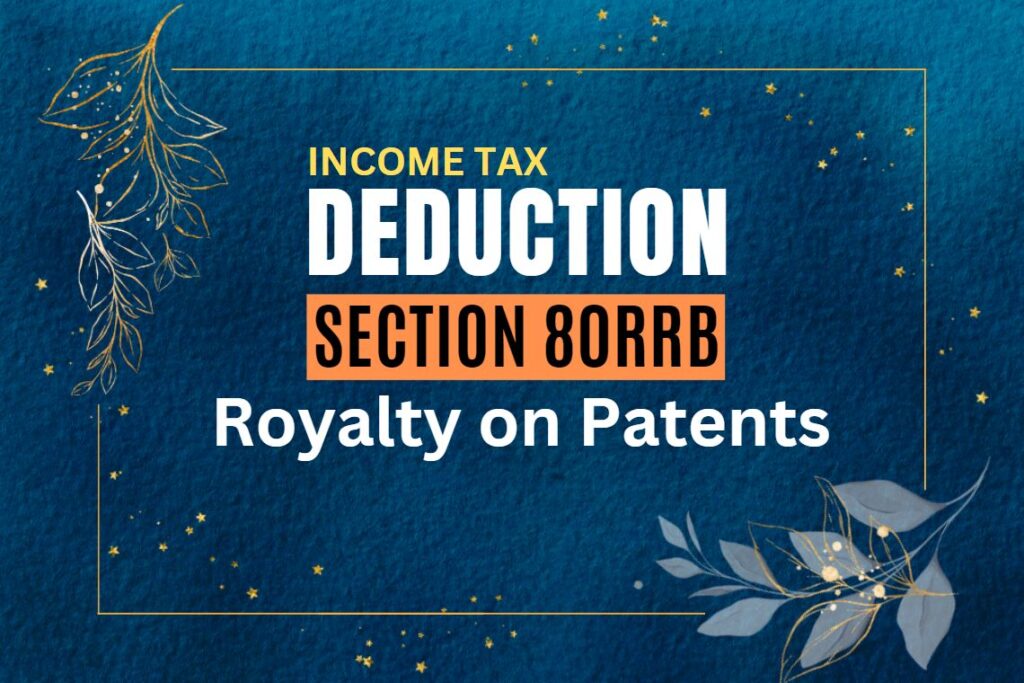Applicable to: Individual authors/researchers (Indian residents)
This section provides tax relief on royalty income from books (excluding textbooks), encouraging literary work in Indian languages.
Key Features (AY 2025-26)
1. Eligible Income
✅ Royalties from published books:
- Novels
- Poetry
- Plays
- Scientific works
❌Excludes:- Textbooks
- Guides/help books
- Translations
2. Deduction Details
| PARAMETER | LIMIT |
| Maximum Deduction | ₹3 lakh/year |
| Eligible Languages | All Indian + English |
| Income Type | Royalties only (not lump-sum payments) |
3. Claim Process
- Submit Form 10CCDwith ITR
- Attach Publisher’s Certificateconfirming:
-
- Book title & language
- Royalty amount
- ISBN details
Illustrative Example
Case: Author earns ₹5 lakh royalties from a Hindi novel
- Taxable Before 80QQB:₹5 lakh
- Deduction Claimed:₹3 lakh
- Taxable After 80QQB:₹2 lakh
- Tax Saved (@30%):₹90,000
Comparison with Similar Sections
| SECTION | APPLICABILITY | BENEFIT |
| 80QQB | Authors | ₹3 lakh deduction |
| 80RRB | Patentees | ₹3 lakh deduction |
| 35CCC | R&D | 100% expense deduction |
Pro Tips for Authors
- Register with ISBNto strengthen claims
- Negotiate Royalty Clausesin publishing contracts
- Combine with 80C(if investing royalty income)
FAQs
Q: Can ghostwriters claim this?
A: No, only named authors qualify.
Q: Are e-book royalties eligible?
A: Yes, if published through recognized platforms.
Q: Can NRIs claim this?
A: No, only resident Indians.
Conclusion
Section 80QQB supports Indian authors by reducing tax burden on creative earnings. To maximize benefits:
- Maintain royalty payment records
- Ensure books have ISBN
- File Form 10CCD correctly











